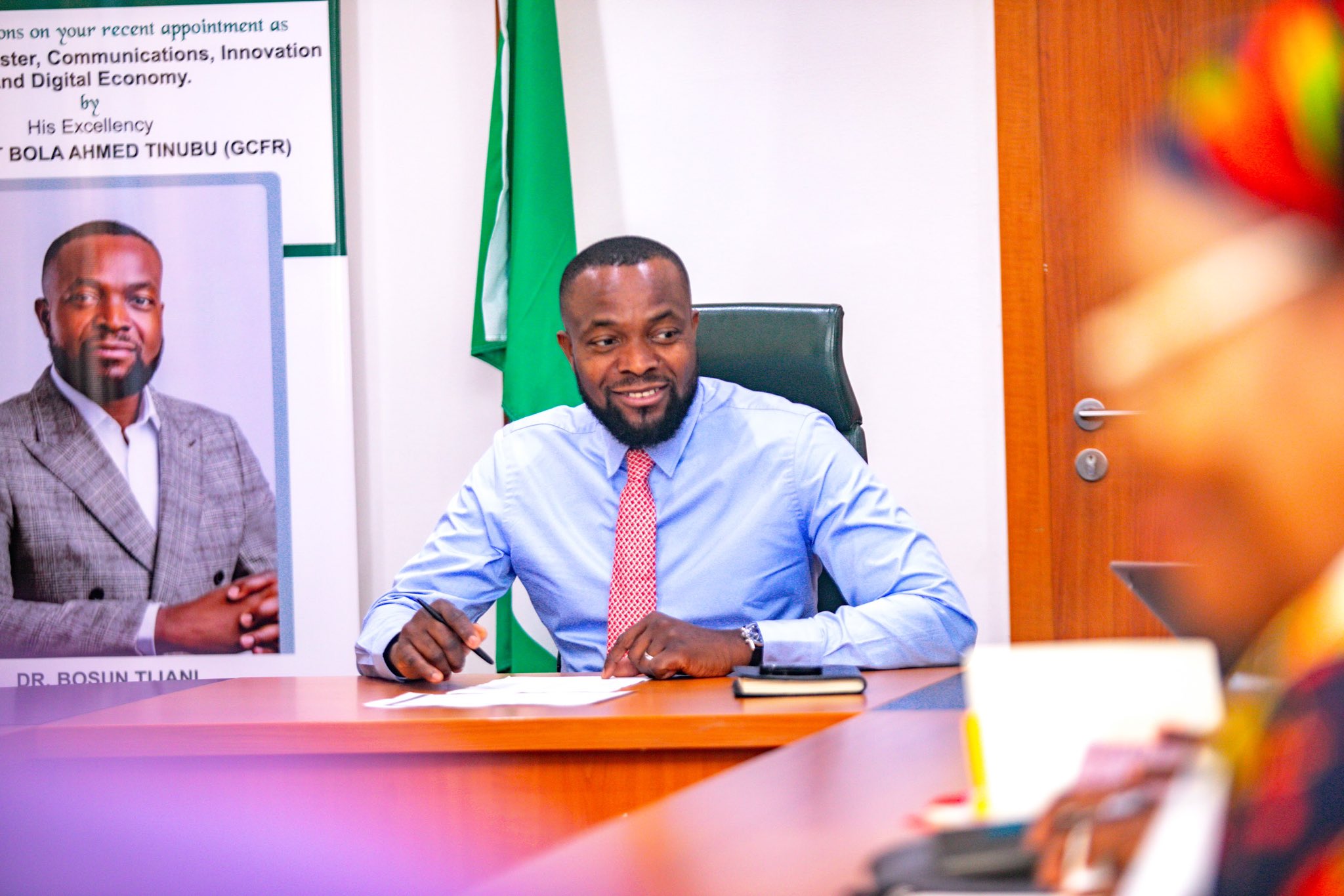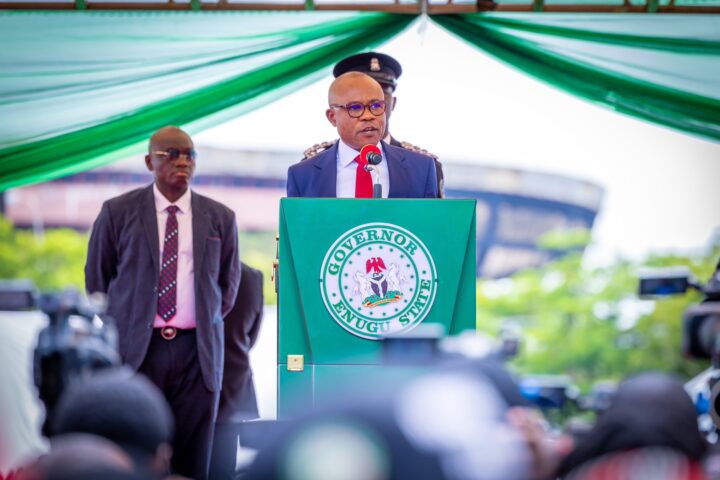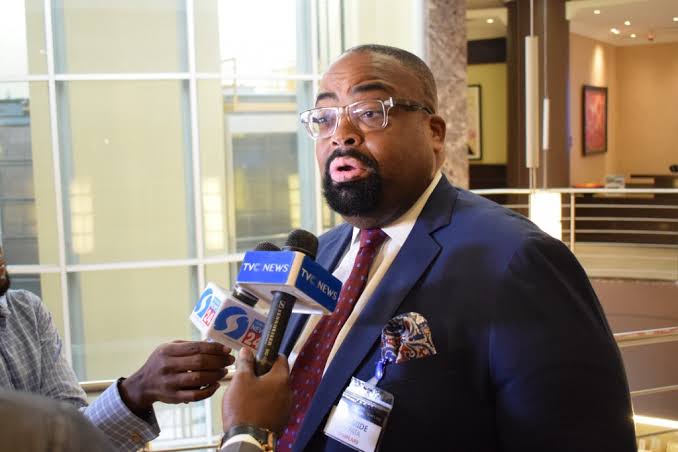The year 2001 is generally regarded as the tipping point of the telecommunications industry in Nigeria. That was the year the industry was democratised for ordinary folks to have access to telephony. It has been over two decades of celebrating achievements in the sector and this has literally blinded us against blights and failures in the industry.
However, the 31-page document released by Dr Bosun Tijani, Minister of Communications, Innovation and Digital Economy, acknowledges such legacy growth and developments in the industry but says that time has come to reload and head to the future with new hopes and aspirations in order to take the industry and the general economy to a new level of growth that is more inclusive.
The document is very aspirational and articulate. Titled, Accelerating our Collective Prosperity through Technical Efficiency (A Strategic Plan for the Federal Ministry of Communications, Innovation and Digital Economy), the document is a ‘’strategic blueprint” which “articulates a vision for Nigeria that builds on the transformative power of digital technology and innovation to diversify and deepen our economy.”
In order to properly mobilise his workforce and align them with his new vision, the minister contextualises the mandate of the ministry, which is to “accelerate the diversification of the Nigerian economy by enhancing productivity in critical sectors through technological innovation.”
Advertisement
The workforce are domiciled in the ministry and its various agencies, namely: Galaxy Backbone, Nigerian Communications Commission (NCC), Nigeria communications Satellite Limited (NigComSat), Nigeria Data Protection commission (NDPC), Nigerian Postal Service (NIPOST), National information Technology development Agency (NITDA), and Universal Service Provision (USPF).
It will be remiss not to quickly point out to the minister that USPF is not an agency but a department or unit of the NCC which is empowered by the Nigerian Communications Act 2003 to have its own board because of its peculiar nature of being a fund that has to be properly managed in handling intervention projects.
The former minister, Dr Isa Pantami, tried to elevate USPF to the level of an agency for very selfish and less altruistic reasons. Tijani should look at Part IV of the 2003 Act, titled: Universal Service Provision Fund, and not dive in the mire!
Advertisement
The minister’s Strategic Blueprint rests on five key pillars which include: Knowledge, Policy, Infrastructure, Innovation, Entrepreneurship and Capital (IEC) and Trade.
“Knowledge is the cornerstone upon which innovation thrives, and is built upon the bedrock of sound policies. Infrastructure provides the essential backbone for a thriving digital economy, while innovation and entrepreneurship drive economic diversification. Trade, the fifth pillar, represents our commitment to global collaboration and partnerships, recognising that innovation knows no borders,” Tijani states explicitly.
Before 2027, the minister plans to work with other stakeholders to train 3 million technical talents and prioritise their placements within the local and international economy. This is the beauty of the document which has created pillars, set out actions and measurable targets that can be achieved within defined periods of time. He has placed a thumb on building technical skills in Nigerian youths in order to accelerate the growth of Nigeria as a global technical talent hub and net exporter of talent.
Most auspiciously the minister recognises the place of Policy in his bold plan to reimagine and transform the Communications Ministry and the relevant industries. This is very much in line with the position of the Act in Section 23, which empowers the minister to give the general policy direction for the communications sector.
Advertisement
The document states that “effective policy provides regulatory clarity and necessary incentives for an environment where businesses and innovators are empowered to grow. Over the next four years, our policies will focus on encouraging investment, research and development and the protection of intellectual property.”
Such policies will cover the Nigerian National Broadband Plan, National policies on Digital Public infrastructure, National Policy on Telecommunications, National Blockchain Policy, National Data Strategy, National Artificial Intelligence Bill, National Digital Economy Bill, Nigeria Startup Act and National Digital Literacy Framework.
The minister is in good company when he says, “As telecommunications continue to evolve in line with new technology and associated opportunities, it is critical to revamp our national approach to account for changing imperatives and to situate broadband development at the core of our national policy for the next 20 years. Core issues such as spectrum management, convergence, universal access, broadband penetration, net neutrality and Quality of service (QoS) have morphed significantly from when the last policy was issued.”
The current policy was revised in the year 2000. Situating the ever mutating telecoms sector under an inclusive umbrella that will create a home for the restless productive lot, seemed to have been overlooked by the previous administration that was more interested in appropriating regulation than providing a shelter for growth. It will be a welcome development for the minister to produce policies that can ignite growth in the industry.
Advertisement
The minister wants to “connect communities and businesses by implementing our broadband strategy to ensure that everyone is carried along. Managing our spectrum efficiently will create pathways for the growth of new technologies and improve access to government services,” he said. The minister is very much on point.
Quite a few things need to be looked at here and I think the minister may have been supplied some wrong data in some instances which formed the basis of underlying optimism and assumption in some of the measurable outcomes. The nation suffers infrastructure deficit in every respect, whether in power generation and distribution, water supply, road infrastructure or service roll out in telecommunications, the nation is in shouting deficit. There is really no reason to paper them over in order to build hope that will evaporate in smoke.
Advertisement
For instance, I am persuaded not to believe that the nation has a broadband coverage of 50 per cent which the minister wants to boost to 70 percent by 2025. My simple explanation is that fibre roll out in the country has been slow and also suffered greatly from policy inconsistency between states and the federal government. This results in high charges for right of way (RoW). Furthermore, a majority of the base stations for mobile operations in the country are mostly 2G and 3G and that really hasn’t done so much for broadband nor will it be able to achieve expected results by subscribers.
Instead of a hyped sense of achievements by some agencies under his ministry, the minister should be encouraged to study the challenges confronting operators in the telecommunications industry and try to find lasting solutions to them with his policy thrust.
Advertisement
Being a young man himself, I can see that the minister harbours no thoughts that Nigerian youths are lazy. Instead he wants to affect their lives through technology training and adoption. However, there are low hanging fruits. I will suggest that the minister take an inventory of the digital installations by the NCC, NITDA and USPF, and reactivate and upgrade the centres for effective use by the various communities and institutions.
With the various buildout and energies properly appropriated, I believe it is possible for the minister to meet the various targets he has set from himself, including top 50 global ranking (currently 96) in AI readiness and adoption across metrics (Computing power, Skills, Data Availability, Ethics and Governance) by 2030.
Advertisement
The minister also needs to embrace some reality. There is nothing happening at NigComSat at the moment, not to talk of achieving targets that will not be feasible. NigComSat needs complete overhaul, industry redemption and rehabilitation.
Although this has already been said, it needs restating. The minister needs to understand the status of USPF and be ready to put it to proper use, instead of making it a sinkhole as we saw under the previous administration. Besides, I see a few faces around him who had a hand in the failure of his predecessors.
Above all, I like a guy who leads from the front and mobilises the rest of us to follow his example. He has not claimed to know it all. Instead he has put out a ministry’s document he calls a roadmap and has invited generous input from other stakeholders. Perhaps, this should be the minimum demand from ministers, to release documents that will demonstrate an understanding of the ministries they head, and how their activities affect the various industries inclusively.
Bosun Tijani has floated a standard with his document. My little appeal is for others to see the good in what he has done and do the same.
Views expressed by contributors are strictly personal and not of TheCable.
Add a comment







